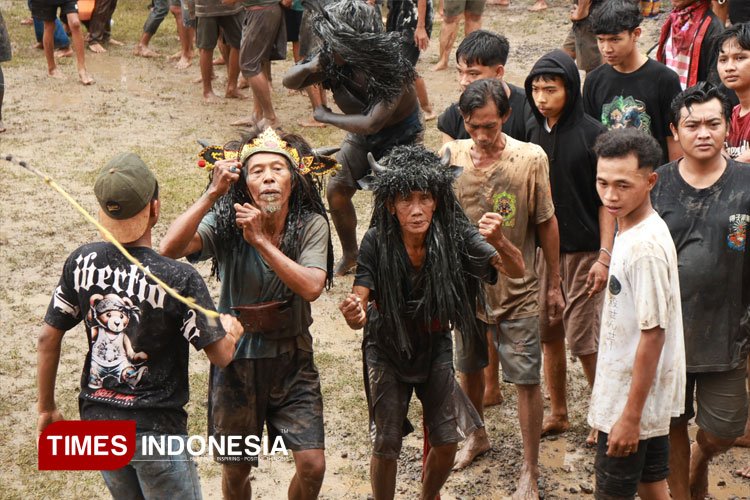Mud, Myth, and Meaning: Keboan Aliyan Banyuwangi's Enduring Cultural Ritual

TIMESINDONESIA, BANYUWANGI – In the heart of Banyuwangi’s Aliyan Village, East Java, a centuries-old ritual continues to thrive—not just as a tradition, but as a magnetic force for tourism and cultural identity. The Keboan Aliyan Festival, held annually in the month of Suro in the Javanese calendar, transforms the quiet village into a vibrant, muddy arena filled with tradition, mysticism, and communal joy.
Unlike typical cultural performances designed purely for display, Keboan Aliyan is a living ritual. Villagers dress as kebo or buffaloes, their bodies smeared in mud, as they parade through the streets in a trance-like state.
Advertisement
This symbolic transformation pays homage to the vital role buffaloes once played in agriculture and represents a plea for safety, prosperity, and protection from natural disasters.
But beyond its spiritual roots, Keboan Aliyan has become a showcase of cultural resilience. It is an expression of how deeply ingrained local values can evolve into powerful tools of cultural diplomacy and economic development.
Thousands of domestic and international visitors now flock to witness the spectacle each year, turning the once-local event into a tourism highlight in Banyuwangi’s calendar.
The festival doesn’t just entertain—it educates. Spectators are drawn into a narrative that blends myth, belief, and agrarian symbolism, revealing the villagers' enduring relationship with the land.
Traditional music, culinary offerings, and art displays surround the main ritual, offering a fuller experience of Banyuwangi’s cultural richness.
Local officials emphasize that the festival is not staged for commercial purposes, but is rooted in sacred ancestral tradition. This authenticity is part of what keeps visitors returning—and what keeps the community grounded in its identity.
“Keboan Aliyan is not a tourist show. It is a real tradition with spiritual meaning that has been passed down through generations,” said Johan Subagio, Head of the Rogojampi Subdistrict.
In recent years, Keboan Aliyan has also become a platform for younger generations to reconnect with their heritage. Many youth who once migrated to urban areas return home to participate in or document the event, breathing new life into the custom.
This intergenerational collaboration helps ensure the continuity of the ritual and its relevance in the digital age.
As Keboan Aliyan continues to evolve, it stands as a testament to the power of culture to unite communities, draw global attention, and build sustainable tourism rooted in authenticity. In Aliyan Village, the mud may wash off, but the meaning lingers—etched in the hearts of both performers and onlookers alike. (*)
**) Ikuti berita terbaru TIMES Indonesia di Google News klik link ini dan jangan lupa di follow.
| Editor | : Khodijah Siti |
| Publisher | : Lucky Setyo Hendrawan |

